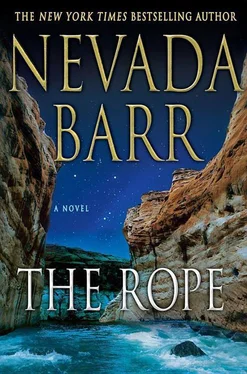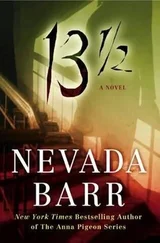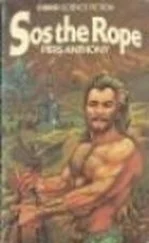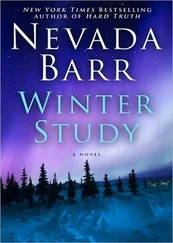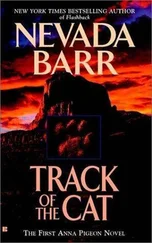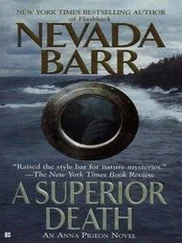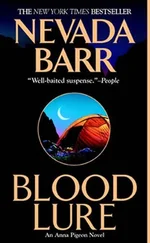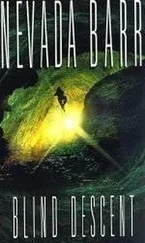Bethy wrinkled up her nose and forehead like a little kid trying too hard to think. Finally she gave it up. “You’re so weird,” she said. “Is everybody in New York as weird as you?”
“In New York the people are as gods,” Anna said as she followed Bethy down the yellow sand road. “Spider-Man: a New Yorker. Batman, the same. Gotham was just an alias. King Kong immigrated to New York. In New York I am considered to be the most banal of beings.” There was a quality about Bethy Candor that allowed Anna the peculiar freedom of chatter, or, when feeling wildly audacious, of babble. Only with Zach had she given herself permission to free-associate. With her husband, it was their shared joy of whimsy, wordplay, and language that lowered the inhibitions and opened the mental floodgates.
With Bethy, Anna suspected it was because, cruel as it was to think—let alone put into words—it was rather like talking to the family cocker spaniel. Not being understood, how could one be judged in any meaningful way? Once in a while Bethy surprised her by responding intelligently, but not often enough that Anna worried about it.
Anna paid as little attention to, and understood as little of, Bethy’s monologues as Bethy did hers. Friendships had been built on less camaraderie than that, Anna supposed.
The canyon, half again as wide as Anna’s shoulders, had a flat sandy bottom and the lazy curves of a snake’s trail. Sunset wasn’t for a couple of hours, but it had long since finished its brief visit to the bottom of the forty-foot slot. The air was cooler between the walls, and a pleasant breeze blew down-canyon, as it often did at this time of day. Light was clear but didn’t have the glare it did on the water. For the first time in a closed-in space Anna felt relaxed. She must tell Jenny. Jenny was the kind of girlfriend Anna hadn’t had since she was in grade school and spent most of her free time with Sylvia Gonzales; the kind of girlfriend for whom one saved up successes and failures along with foolish remarks and astute observations, like treasures to carry back and share. Jenny would be pleased Anna had entered this benign bit of Mother Earth with fearlessness.
Jenny. Anna had accepted her with ease, as if such friendships came along every day or sprang fully formed like Venus from the sea. She supposed it was shared trauma. Emotions became accessible in times of stress or high drama. One of the dangers of the theater was that actors could so easily fall in love with one another in the same way people thrown together on a great adventure often did. When the final curtain came down, it was anybody’s guess as to whether the romance would survive the daunting ordinariness of day-to-day life.
The canyon narrowed but didn’t squeeze, and there was no water in which to fall and die of cold. Happily, Anna scrambled along in Bethy’s wake as she climbed upward through crevices and rock chimneys that reminded Anna of the children’s board game Chutes and Ladders.
Bethy chattered breathily as she climbed. “I can’t wait until Regis turns thirty. It’s not even two whole years and then we’re going to go to Europe and see stuff. He promised me. And I’m going to get all new clothes and we’ll cruise. Have you ever been on a cruise? I haven’t, but I’m probably supposed to have a baby pretty soon and cruises are supposed to be, you know, all romantic and everything…”
Anna’s ears pricked up at this. Whether Bethy was telling the truth or spinning a fantasy, Anna couldn’t guess. Either way it was a bit of gossip to share with her housemate. The wicked glee at such a human foible was untarnished by guilt. Needing to catch her breath, Anna stopped for a moment, her butt on a slanting four-inch shelf, feet and hands on the two sides of the triangular chimney they clambered up. Gossip, unless aimed or honed sharp like a weapon, was natural to human beings. It showed interest in one’s fellows, interest in the well-being of the tribe. Gossip was a way to learn taboos, pass on warnings, share the burden of being human among many so the onus of bearing it alone would fall on no one person. At least that’s what Molly always said, and who would know better than she?
“Rock!” Bethy shouted.
Anna pressed her head back against the chimney wall and covered her face with her forearm. A stone the size of a softball grazed her right knee as it fell between her legs to clatter down the chute beneath her.
“You okay?” Bethy called.
“Yeah,” Anna said.
“Sorry about that. My fault. I shoulda poked it before I stepped on it,” Bethy said.
Looking up, Anna could see the other woman about twenty feet above her looking down through her wide-set feet, head and fanny in alignment with the forced perspective.
“No harm done,” Anna said and then checked her knee, locked to keep the pressure that wedged her in the chimney. Her trousers hadn’t torn, and no blood was seeping through. That was all she would know until she tried to bend it. Settling her other limbs and digits more firmly, she put her foot on a nice little outcropping. The joint was in good working order.
“Almost there,” Bethy called. “Don’t be such a slowpoke.” She vanished from Anna’s line of sight. Anna followed. Feet, hands, knees, back, and brain occupied with the business of ascent, she moved quickly. When she reached the point where she’d last seen Bethy, a vertical crack, two feet wide, with a lovely smooth rock bottom led off to the right. Anna levered herself into it and stood upright. After the chimney, the going was as easy as a stroll down a sidewalk in Central Park. Within less than a minute the crack ended. Anna stepped from the sandstone’s embrace onto a natural balcony the size of the stage’s apron in a small theater. Tumbled rock and blown sand created enough earth that a few hardy plants had taken root and were surviving, if just barely. Bethy was sitting on a rectangular boulder, sides so straight and size so perfect it would be easy to believe it was man-made.
“Cool, huh?” Bethy said, as Anna took in the vista.
The balcony was sixty or more feet above a finger of the lake, as close to an aerie as anything without wings was likely to get.
“This is amazing,” Anna said and laughed because, in this place, language failed her. The depth and beauty of evening’s muted palette on a canvas too immense for man’s imagining was enough to strike a poet dumb and a painter blind.
“Cool, huh?” Bethy repeated.
“Exceedingly cool,” Anna replied. Crossing to the stone, she sat down next to Bethy and let her soul drink in the intricacy of the view. The climb had taken less than an hour, and, though in the morning there would be new aches in heretofore unchallenged muscles, for the moment she felt pleasantly tired and inexplicably moved by this gift Bethy Candor had given her.
She doubted they were the first white women ever to set foot in this tiny Eden, a suspicion borne out by the dull round of a beer bottle cap pocking the dirt at the base of a small but dedicated cactus. Yet it was new and fresh for Anna, and she was grateful for having been led there.
“Thanks, Bethy,” she said earnestly. “This is a real treat.” She turned to smile at her companion just as Bethy Candor lunged for her.
Regis was in a foul mood. Jenny was half sorry she’d bummed a ride with him back from her shopping trip in Wahweap. For the first time in years shopping was a pleasure. Commuting to town once a week to hit the grocery store for peanut butter and booze, and the Walmart for paper and plastic items that had become necessities for a modern household, was usually a tedious waste of a perfectly good lieu day.
Shopping for treats to share with Anna filled Jenny’s head with delicious plots and plans for camp suppers and lunch picnics. Now that Anna had taken on the task of turning herself into Superwoman, she was a most appreciative audience for Jenny’s culinary surprises.
Читать дальше
